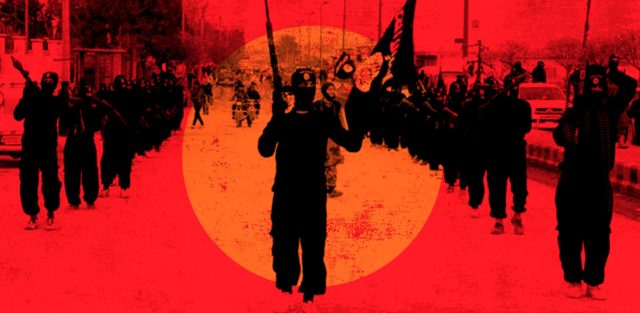
By Mark Young, SouthFloridaReporter.com Managing Editor, Nov. 15, 2015 – We are all saddened by Friday’s massacre in Paris, where Isis proudly claims responsibility for the attacks that took 129 lives with 350 others wounded. Isis also takes credit for the explosion aboard a Russian passenger jet that took another 244 lives. The body count claimed by Isis continues to grow.
The question is, what do we really know about Isis?
This past March The Atlantic magazine published an indepth story delving into the background of Isis. It is a lengthy story which I urge everyone to read. I came across the article because it has surfaced on various places on the internet.
One takeaway from the article is how Isis continues to use the modern technology of Facebook, Twitter and YouTube to spread it’s beliefs about ancient culture and recruit new followers around the world.
By GRAEME WOOD, The Atlantic, March 2015 Issue –
The Islamic State is no mere collection of psychopaths. It is a religious group with carefully considered beliefs, among them that it is a key agent of the coming apocalypse. Here’s what that means for its strategy—and for how to stop it.
What is the Islamic State? Where did it come from, and what are its intentions? The simplicity of these questions can be deceiving, and few Western leaders seem to know the answers. In December, The New York Times published confidential comments by Major General Michael K. Nagata, the Special Operations commander for the United States in the Middle East, admitting that he had hardly begun figuring out the Islamic State’s appeal. “We have not defeated the idea,” he said. “We do not even understand the idea.” In the past year, President Obama has referred to the Islamic State, variously, as “not Islamic” and as al-Qaeda’s “jayvee team,” statements that reflected confusion about the group, and may have contributed to significant strategic errors.
The group seized Mosul, Iraq, last June, and already rules an area larger than the United Kingdom. Abu Bakr al-Baghdadi has been its leader since May 2010, but until last summer, his most recent known appearance on film was a grainy mug shot from a stay in U.S. captivity at Camp Bucca during the occupation of Iraq. Then, on July 5 of last year, he stepped into the pulpit of the Great Mosque of al-Nuri in Mosul, to deliver a Ramadan sermon as the first caliph in generations—upgrading his resolution from grainy to high-definition, and his position from hunted guerrilla to commander of all Muslims. The inflow of jihadists that followed, from around the world, was unprecedented in its pace and volume, and is continuing.
“Our failure to appreciate the split between the Islamic State and al-Qaeda, and the essential differences between the two, has led to dangerous decisions.”
Our ignorance of the Islamic State is in some ways understandable: It is a hermit kingdom; few have gone there and returned. Baghdadi has spoken on camera only once. But his address, and the Islamic State’s countless other propaganda videos and encyclicals, are online, and the caliphate’s supporters have toiled mightily to make their project knowable. We can gather that their state rejects peace as a matter of principle; that it hungers for genocide; that its religious views make it constitutionally incapable of certain types of change, even if that change might ensure its survival; and that it considers itself a harbinger of—and headline player in—the imminent end of the world.
About the author: GRAEME WOOD is a contributing editor at The Atlantic. His personal site is gcaw.net.
[/vc_message]











